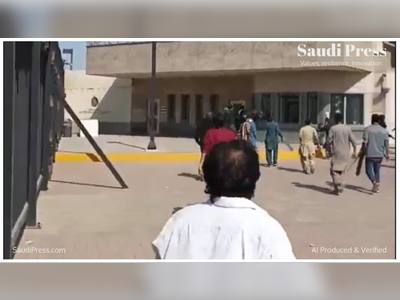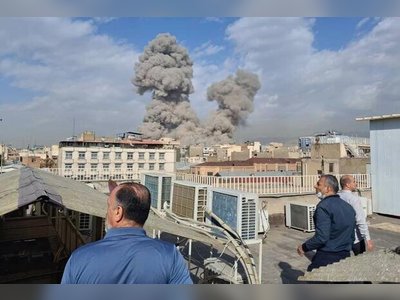Global Concerns: Iran's Execution Surge, Libyan Fighters in South Africa, Gaza's Humanitarian Crisis, and Regional Diplomacy Challenges
UN experts alarmed by over 400 executions in Iran this year, citing drug offense due process issues and calls to halt. South Africa detains 95 Libyans training for Haftar, violating military assistance laws.
UN experts have raised alarm over a spike in executions in Iran, with over 400 people executed so far in 2024, including Kurdish protester Reza Rasaei. This surge, often attributed to drug offenses with questionable due process, prompts calls for a halt amid concerns of wrongful executions.
Transitioning now to South Africa, where ninety-five Libyans deported last month were revealed to be training as special forces for Khalifa Haftar's faction, not security guards. These men, detained under irregular study visas, highlight violations of South Africa’s Foreign Military Assistance Act, with some being former Daesh fighters.
Meanwhile, Hamas has criticized Israeli Prime Minister Netanyahu and revised instructions for guards of Israeli hostages in Gaza, highlighting stalled negotiations for a hostage exchange deal. The conflict continues to exacerbate tensions, with Hamas demanding an end to the war and Israeli withdrawal from Gaza for any resolution.
As the conflict rages on, over 625,000 children in Gaza are left without schools, with 87.7% of educational facilities damaged or destroyed. Efforts to aid displaced families face immense challenges, with UNICEF reporting severe malnutrition and displacement tied to the broader humanitarian crisis.
In some positive news, Kuwait has sent its 10th relief plane to Sudan, bringing 10 tonnes of essential food supplies to combat the acute humanitarian crisis. This effort, a collaboration among various Kuwaiti ministries, addresses severe shortages due to floods, heavy rains, and ongoing conflict, affecting around 25 million people.
Finally, Egypt is urging the UN to intervene regarding Ethiopia's actions over the Grand Ethiopian Renaissance Dam, citing breaches of international law. Egypt’s Foreign Minister stressed the importance of cooperative practices for mutual growth, warning of the severe consequences Ethiopia's unilateral actions could have on downstream nations.
Transitioning now to South Africa, where ninety-five Libyans deported last month were revealed to be training as special forces for Khalifa Haftar's faction, not security guards. These men, detained under irregular study visas, highlight violations of South Africa’s Foreign Military Assistance Act, with some being former Daesh fighters.
Meanwhile, Hamas has criticized Israeli Prime Minister Netanyahu and revised instructions for guards of Israeli hostages in Gaza, highlighting stalled negotiations for a hostage exchange deal. The conflict continues to exacerbate tensions, with Hamas demanding an end to the war and Israeli withdrawal from Gaza for any resolution.
As the conflict rages on, over 625,000 children in Gaza are left without schools, with 87.7% of educational facilities damaged or destroyed. Efforts to aid displaced families face immense challenges, with UNICEF reporting severe malnutrition and displacement tied to the broader humanitarian crisis.
In some positive news, Kuwait has sent its 10th relief plane to Sudan, bringing 10 tonnes of essential food supplies to combat the acute humanitarian crisis. This effort, a collaboration among various Kuwaiti ministries, addresses severe shortages due to floods, heavy rains, and ongoing conflict, affecting around 25 million people.
Finally, Egypt is urging the UN to intervene regarding Ethiopia's actions over the Grand Ethiopian Renaissance Dam, citing breaches of international law. Egypt’s Foreign Minister stressed the importance of cooperative practices for mutual growth, warning of the severe consequences Ethiopia's unilateral actions could have on downstream nations.











